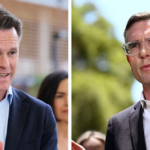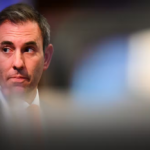Will Gillard’s election gamble pay off?
In the wake of Australia’s longest-ever federal election campaign, Dr Dominic O’Sullivan examines whether the long haul battle between Labor and Liberal will make for informed voting choices at the polls.
The Prime Minister’s risk in naming the election date six and a half months earlier than constitutionally necessary has, so far, not paid off. For many of her colleagues and political commentators it was always just another example of poor Prime Ministerial judgement and, for some, yet another reason to recall Kevin Rudd to the Labor party leadership.
The authority to advise the Governor-General when to dissolve the Parliament, and hold an election, is usually regarded as one of incumbency’s important strategic advantages. In giving that advantage away the Prime Minister was hoping to catch the Opposition ill-prepared and unable to provide policy costings to establish itself as a credible alternative government. The strategy’s success was always going to depend on the Prime Minister setting the agenda to keep policy, not scandal or errors of political judgement, at the forefront of public attention.
Unfortunately, for the Prime Minister, Craig Thomson, Peter Slipper and Eddie Obeid make better news than getting the Coalition to admit that it hasn’t yet worked out how to balance the budget, while repealing the mining tax, the carbon trading scheme, preserving superannuation tax concessions and, as yet, announcing only the discontinuance of the Schoolkids bonus as a significant cut to public expenditure. More cuts will be needed and full costings worked out if the Coalition is to present a credible plan to balance the Budget and present itself authoritatively as a fiscally responsible government in waiting.
In contrast, the Government is preparing major policy (and spending) initiatives – the National Disability Insurance Scheme (NDIS) and the reforms to school funding recommended by the Gonski review. However, reforms to superannuation tax arrangements that the Government has foreshadowed as a way of paying for these new policies may yet prove controversial and counter the political benefit the Government expects from the NDIS and Gonski.
If Thomson, Slipper and Obeid continue to overshadow debate on the substantive issues that really matter in terms of shaping Australia’s post-election politics, then the political process and democracy itself will be the poorer. The Coalition will not be manoeuvred into policy campaigning before it is ready and none of the contestants’ policies will receive the level of scrutiny or acquire the level of public understanding that is necessary for people to make informed voting choices.
The Government requires seven scandal-free months to give itself a competitive chance. Other peoples’ alleged misconduct is largely beyond the Prime Minister’s control. However, sound strategic judgement – such as when to interfere in party selection processes and when to announce Cabinet reshuffles – is expected of a Prime Minister. It is expected especially by colleagues in marginal seats who, as prospective unemployment draws closer may well, in increasing number, consider it preferable to allow the return of a man they intensely dislike to the party leadership. While Gillard’s leadership seems not to be under immediate threat, her colleagues’ patience for mistakes reflected in poor polling is surely not limitless?
A likely immediate effect of a change in Labor leadership to somebody of Rudd’s popularity is, rather than the public comparing somebody it dislikes with somebody it dislikes even more – Tony Abbot, a comparison with somebody who is liked and still accorded considerable public sympathy over the manner of his removal from office in 2010. The question would then become one of whether Rudd could lead in a disciplined, ordered and focused way through until the election.
In short, the Prime Minister has removed election date speculation from media commentary and analysis to clear the way for more sustained policy scrutiny. She is counting on exposing deficient Coalition policies – if she can do this, naming the date early will prove an inspired move, if she cannot it will go down in history as one of her many lapses in political judgement.
Dominic O’Sullivan is an associate professor in political science at Charles Sturt University. Dominic completed his PhD in political science at the University of Waikato, Hamilton, New Zealand before joining Charles Sturt in 2008. He is widely published in political science, education and public theology, and is the author of three books: Faith, Politics and Reconciliation: Catholicism and the politics of indigeneity (Wellington: Huia Publishers and Adelaide: the Australasian Theological Forum), Beyond Biculturalism: the politics of an indigenous minority (Wellinton: Huia Publishers) and with Russell Bishop and Mere Berryman, Scaling up education reform: addressing the politics of disparity (Wellington: NZCER Press).

Dominic O’Sullivan is Professor of Political Science at Charles Sturt University and Adjunct Professor in the Centre for Maori Health Research at the University of Auckland University of Technology. His recent publications include ‘We Are All Here to Stay’: citizenship, sovereignty and the UN Declaration on the Rights of Indigenous Peoples and Sharing the Sovereign: Recognition, Treaties and the State.













